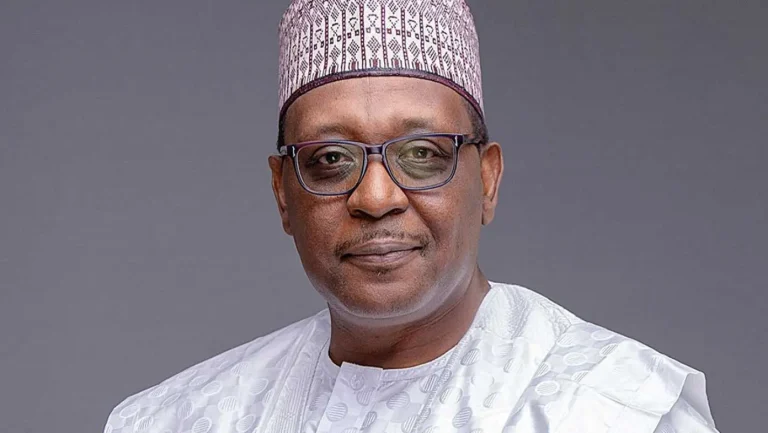The Federal Government has expanded the Basic Healthcare Provision Fund (BHCPF) to over 13,000 Primary Healthcare Centres (PHCs) across the country.
The Coordinating Minister of Health and Social Welfare, Prof. Muhammad Pate, disclosed this on Wednesday in Abuja during the 12th Ministerial Oversight Committee (MOC) meeting on the BHCPF.
Pate said more than 80 million visits to PHCs were recorded in the first half of 2025, representing a fourfold increase compared to 2023.
He added that the government had approved the disbursement of ₦32.9 billion under BHCPF 2.0 to strengthen service delivery, improve staffing, enhance drug supply, and boost the operational capacity of PHCs.
According to him, the number of BHCPF-supported facilities has risen from 8,800 to 13,000, with plans to reach 17,000 in the next phase of implementation.
The minister said more than 21 million healthcare visits had been supported through the BHCPF, including over 11,000 emergency cases and 15,000 women reimbursed for obstetric care.
He noted that Nigeria had recorded a 12 per cent reduction in maternal mortality compared to 2023, alongside an increase in immunization coverage and insurance enrolment among vulnerable populations.
Speaking on health data reforms, Dr. Tomi Coker, Ogun State Commissioner for Health, said the integration of National Identification Numbers (NIN) into the health system now enables real-time verification of service delivery data across communities.
Coker said the reform promotes accountability, transparency, and accurate tracking of interventions, allowing policymakers to make evidence-based decisions at national and state levels.
The Executive Director of the National Primary Health Care Development Agency (NPHCDA), Dr. Muyi Aina, commended Nigerians for embracing primary healthcare services, noting that over 40 million PHC visits in 2025 demonstrated renewed public trust in the health system.
Aina said service utilization had tripled in BHCPF-supported facilities compared to others, with significant improvements in immunization coverage — the third dose of the pentavalent vaccine rising to 91 per cent, nearly double the rate recorded two years ago.
He announced that the government would expand BHCPF-supported PHCs by an additional 5,220 in the next phase, ensuring equitable distribution based on population needs.
Aina said 247 new functional PHCs were added in the last quarter, bringing the total to 1,610 under the current work plan, while over 500 facilities had been equipped with logistics support, cold-chain systems, and solar power.
He added that Nigeria had launched the new malaria vaccine and achieved 96 per cent coverage in pilot states, reflecting increased public confidence in immunization campaigns.
The NPHCDA boss also said that over 400,000 beneficiaries had been supported under the Maternal Mortality Reduction Innovation Initiative, with 100,000 receiving direct services and 30,000 accessing advanced care through collaboration with the National Health Insurance Authority (NHIA).
He noted that the National Emergency Medical Service and Ambulance System (NEMSAS) was now operational in over 30 states, transporting more than 11,000 patients in the last quarter alone.
According to him, ₦322 million was paid to federal and state hospitals for patient admissions, while ₦20 million was disbursed to state emergency services.
He said rural emergency transport systems were now active in over 150 local government areas, including hard-to-reach and conflict-affected communities, and that Nigerians can access free emergency medical services by dialing 193.
Dr. Pavel Ursu, World Health Organization (WHO) Country Representative to Nigeria, commended the Federal Government’s data-driven approach and collaboration with state and sub-national health actors.
Civil society representative and Chair of the Nigeria Universal Health Coverage (UHC) Forum, Chief Moji Makanjuola, said citizen engagement and accountability are vital for improving maternal and child survival.
Makanjuola noted that the Ministerial Oversight Committee’s peer-review process had deepened accountability and accelerated progress toward UHC.
The meeting, attended by state health commissioners, donors, and technical partners, ended with renewed commitments to improve data quality, expand funding, and strengthen digital health coordination and emergency response systems nationwide.


